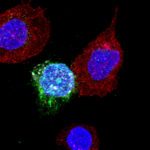Lien vers Pubmed [PMID] – 32694646
Lien DOI – 10.1038/s42255-019-0081-4
Nat Metab 2019 07; 1(7): 704-716
Spontaneous control of human immunodeficiency virus (HIV) is generally associated with an enhanced capacity of CD8+ T cells to eliminate infected CD4+ T cells, but the molecular characteristics of these highly functional CD8+ T cells are largely unknown. In the present study, using single-cell analysis, it was shown that HIV-specific, central memory CD8+ T cells from spontaneous HIV controllers (HICs) and antiretrovirally treated non-controllers have opposing transcriptomic profiles. Genes linked to effector functions and survival are upregulated in cells from HICs. In contrast, genes associated with activation, exhaustion and glycolysis are upregulated in cells from non-controllers. It was shown that HIV-specific CD8+ T cells from non-controllers are largely glucose dependent, whereas those from HICs have more diverse metabolic resources that enhance both their survival potential and their capacity to develop anti-HIV effector functions. The functional efficiency of the HIV-specific CD8+ T cell response in HICs is thus engraved in their memory population and related to their metabolic programme. Metabolic reprogramming in vitro through interleukin-15 treatment abrogated the glucose dependency and enhanced the antiviral potency of HIV-specific CD8+ T cells from non-controllers.










